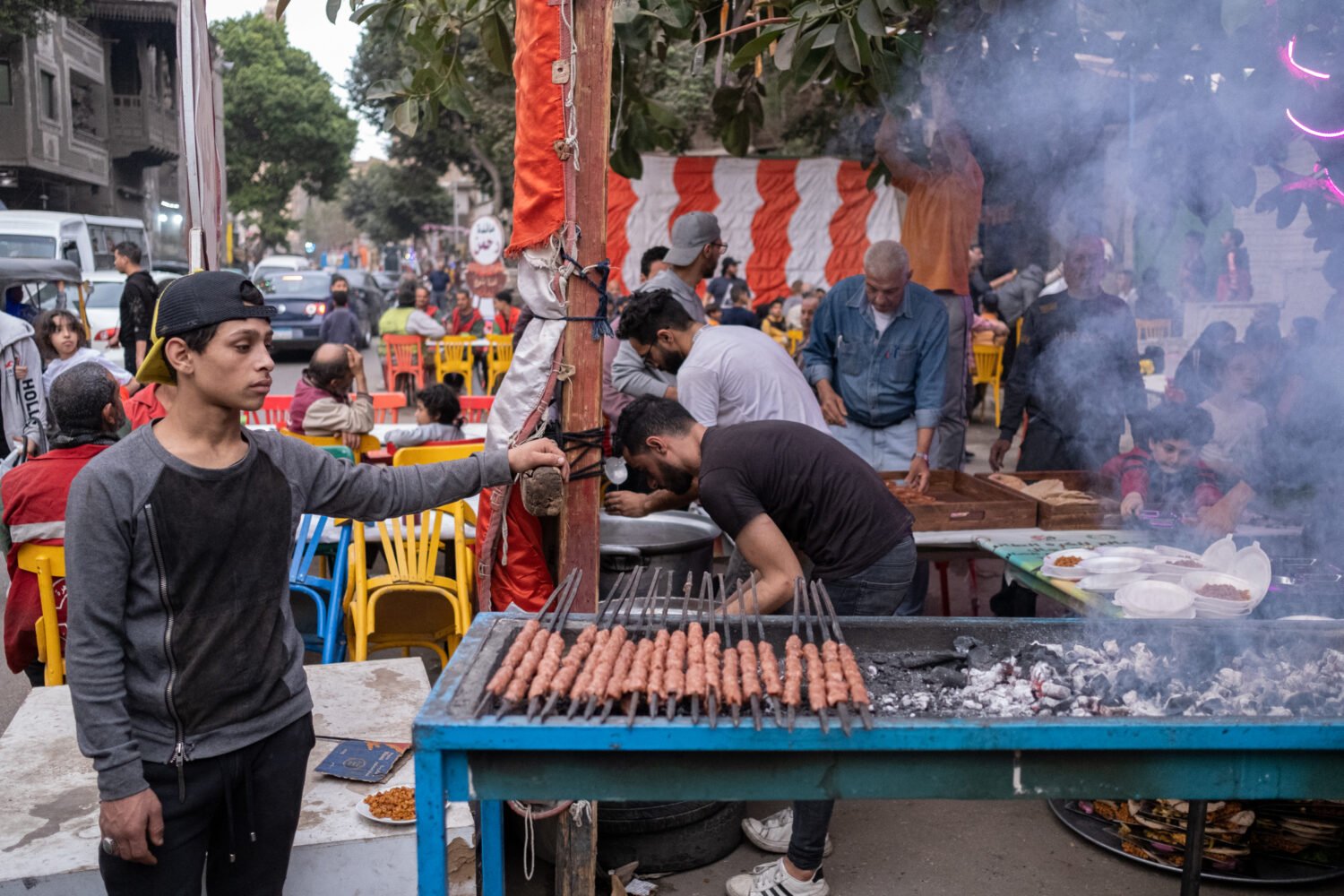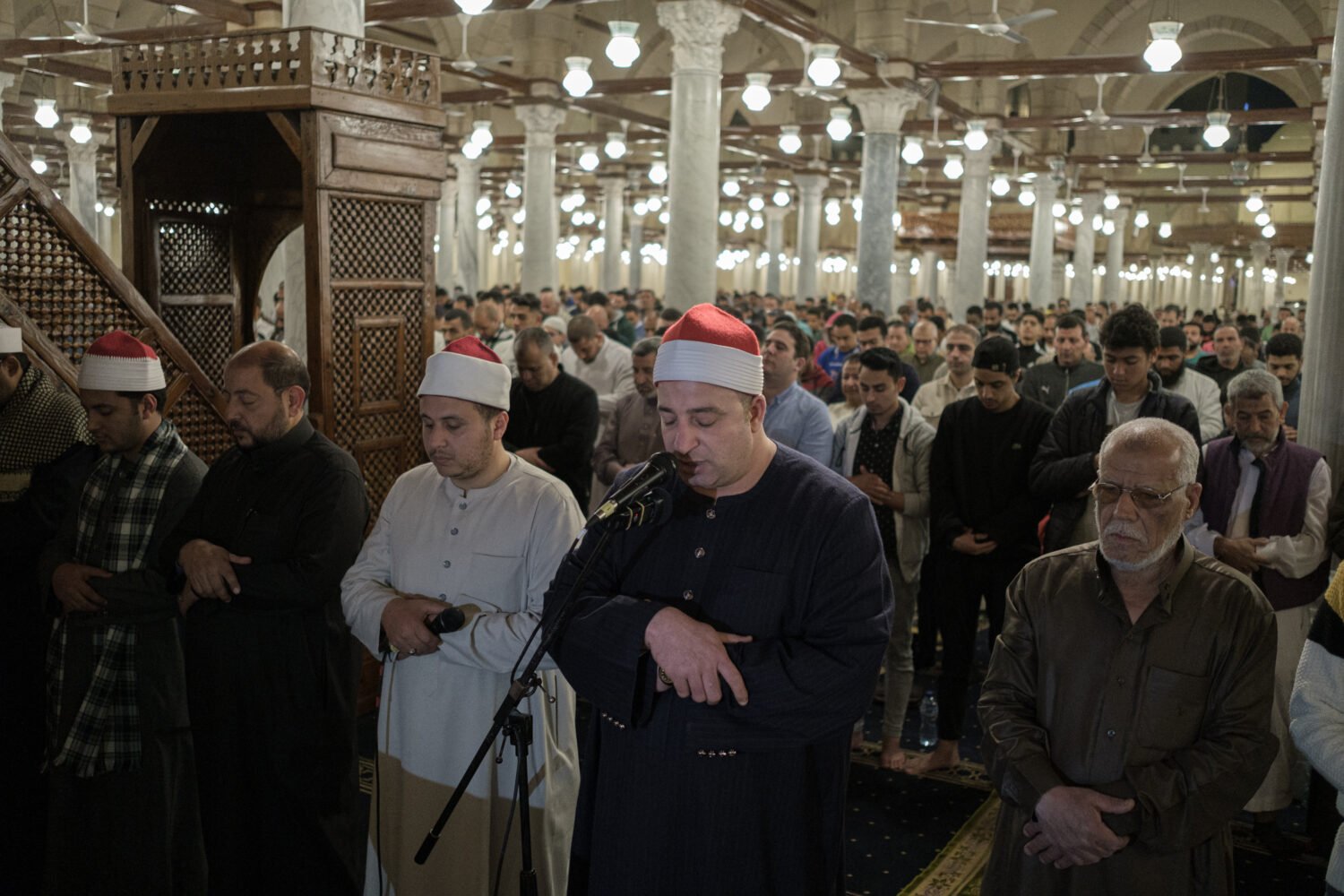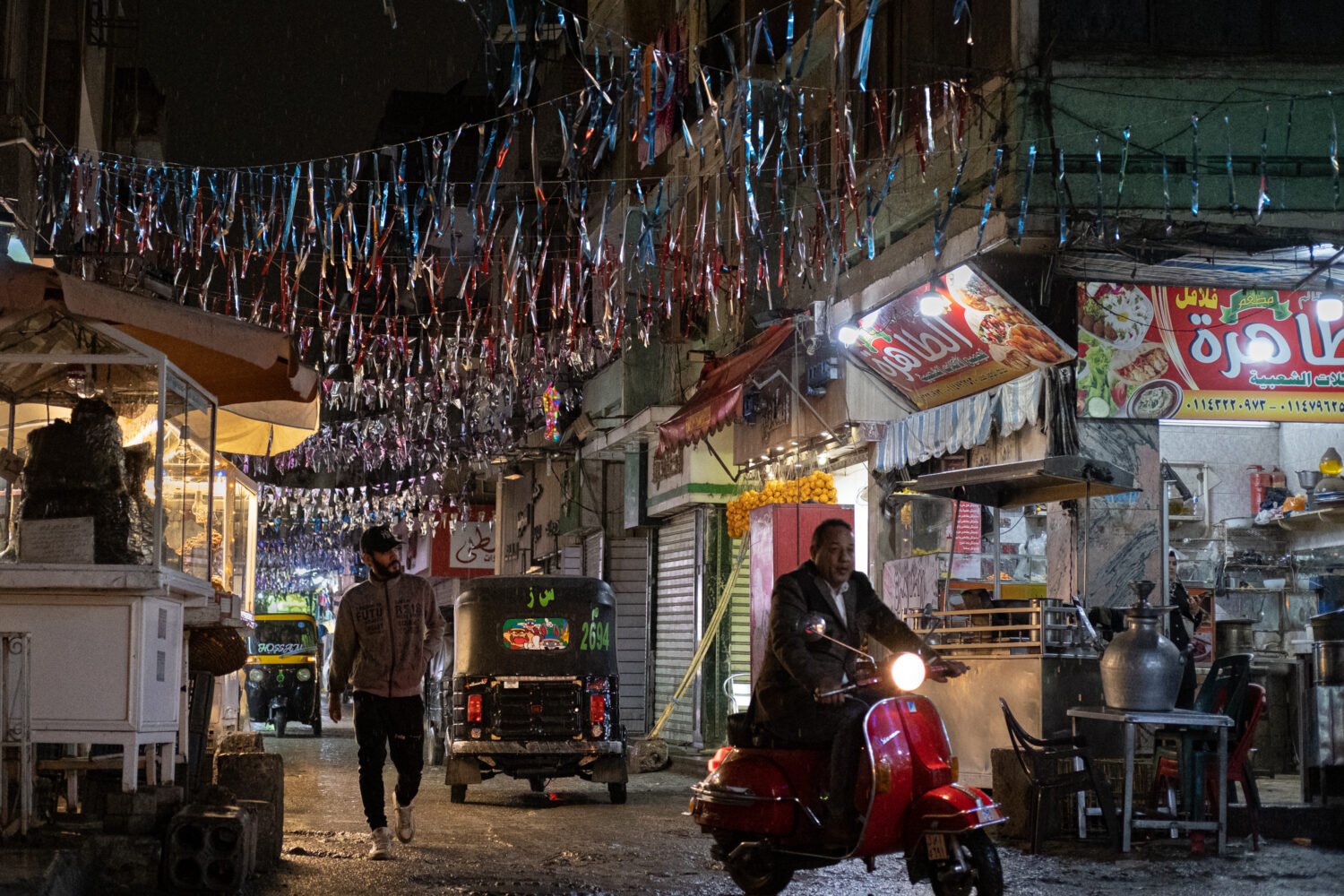Ramadan, the ninth month of the Islamic lunar calendar, is a time of spiritual reflection, fasting, and charitable giving for millions of Muslims around the world.

Photojournalist Aly Hazzaa
In Egypt, a country with a majority Muslim population, the holy month is marked by a unique blend of tradition and modernity. The bustling streets of Cairo are transformed with decorations and lanterns, called fawanees in Arabic.
For millions, Ramadan is a time of profound significance, where families come together to break their fasts, pray, and celebrate the blessings of life. In this photo essay, we explore the sights of Ramadan in Egypt, capturing the spirit of this special time through the lens of our cameras.


During Ramadan, mornings in Egypt tend to be slow and working hours decrease. People tend to stay up late into the night and sleep in in the morning. A few hours before Iftar, however, the city starts to come back to life.
Many well-off individuals will prepare food and hand it out to poor people. In poorer neighbourhoods, the residents would sometimes collect money from each other to host “Rahman Tables”. These are large tables set up in the street for anyone passing by to take a seat and break their fast when it is Iftar time. Even during times of economic hardships, people try to keep up this tradition.
The people who prepare the food themselves and their families often go around the tables and serve the food themselves, making sure that everyone has enough to eat.

Certain pastries and sweets are prepared specifically for the month of Ramadan. The most famous of these are “qatayef” and “konafa”. Most pastries would prepare production lines for these that continue working all day as the demand on them can be quite high, especially in the hours before Iftar.


After Iftar, families would often gather around the TV to watch some of the dozens of new soap operas released every year during the holy month. After a couple of hours, thousands would head out to mosques to perform “Taraweeh prayers”.
These prayers, performed only in Ramadan, are important to many Egyptians and the mosques are often so busy that people place prayer rugs in the streets outside to pray.

Ramadan is known as the “month of the Quran” because Muslims believe that the Quran was revealed to Prophet Muhammad during the month. That is why many people, young and old, often engage in reading the Quran throughout the month. This is either done individually, or in small groups who read it out together. Many people aim to read the whole Quran once or several times during Ramadan.


There are several Ramadan traditions that are specific to Egypt, but have sometimes spread to other Muslim-majority countries. The most famous of these are the “fawanees”, or lanterns. Fawanees come in all sizes, from pocket-sized key chains to several metres tall, and in all shapes and colours.
Starting a month before Ramadan, specific shops spring up all across the country that sell fawanees and decorations. These include tablecloths, napkins, lights, and hanging decorations. Millions of Egyptians flock to buy these, despite the dire economic situation.


Egyptians tend to decorate their homes and streets every year for Ramadan. In poorer districts, neighbours often pool their money together to buy coloured gift wrappings, cut it up into thin pieces, and hang it across buildings as colourful decorations for the whole neighbourhood. Both children and adults take part in these activities.
After the Taraweeh prayers, many people go out to meet friends in cafes where they could stay late into the night and sometimes until dawn. The atmosphere is usually festive, thanks to the lights and decorations that everyone strives to put up.
Shops stay open late during Ramadan to accommodate the shifting hours of Egyptians, and carts or restaurants selling “foul” (fava beans) stay up late, since this is the most traditional food for Sohour, which is the night meal people eat before they start their fast.


